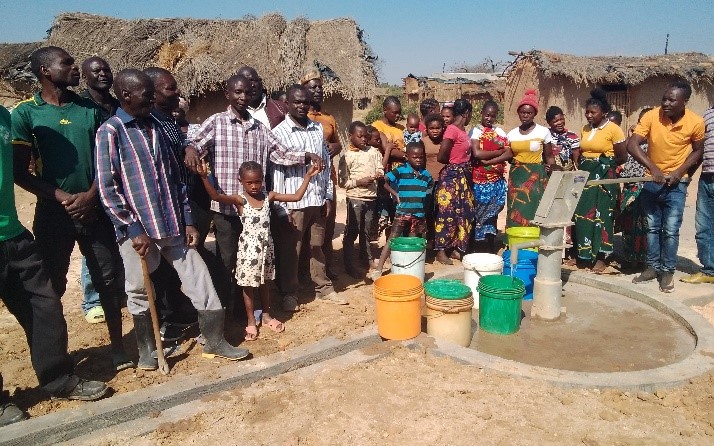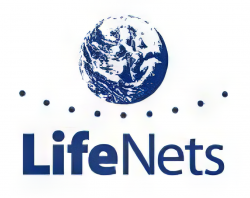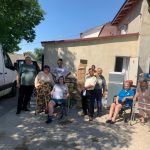Lopo – Another successful LifeNets Borehole
From Filius Jere posted August 14, 2023
Original story https://lifenets.org/zambia-lopo-village-borehole-project/
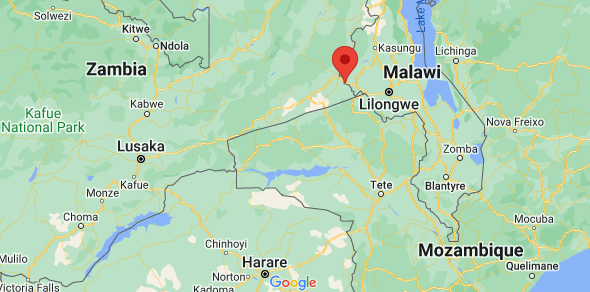 Finally, over 200 households of the Lopo community have access to clean and safe water, thanks to LifeNets International. Lopo is situated on Zambia’s eastern border with Malawi and is part of a group of five densely populated villages in eastern Zambia.
Finally, over 200 households of the Lopo community have access to clean and safe water, thanks to LifeNets International. Lopo is situated on Zambia’s eastern border with Malawi and is part of a group of five densely populated villages in eastern Zambia.
Surrounded by the Mchinji and Luangeni ranges of hills, the area has an estimated population of two hundred and fifty to three hundred households. On average, each household comprises eight persons inclusive of two parents and six children. However, many households have more due to the traditional extended family system where relatives adopt orphans, widows and widowers as a result of scourges like HIV and AIDS.
Due to over-population, clean and safe water has always been a challenge to who, for many years, have depended on unsafe water sources from their vegetable gardens. The government, and other development projects, have tried to provide boreholes. However, several attempts have resulted in dry boreholes due to the underground rock slates. As a result, over the years, people have depended on only two low-yielding boreholes out of five.
The LifeNets project was similarly threatened with failure. At the first site, drilling struck a rock slate only a few meters from the surface; which went on all the way down to the contracted depth of fifty meters. However, due to tenacity and generosity by LifeNets’ injection of extra funds, it was possible to engage a more experienced water engineer to explore for water at a new site within the village. A substantial amount of water was struck at a depth of twenty meters and this went all the way down to fifty meters. This was a most exhilarating occasion for the villagers and everyone willingly volunteered to work on the borehole site to render it clean and hygienic.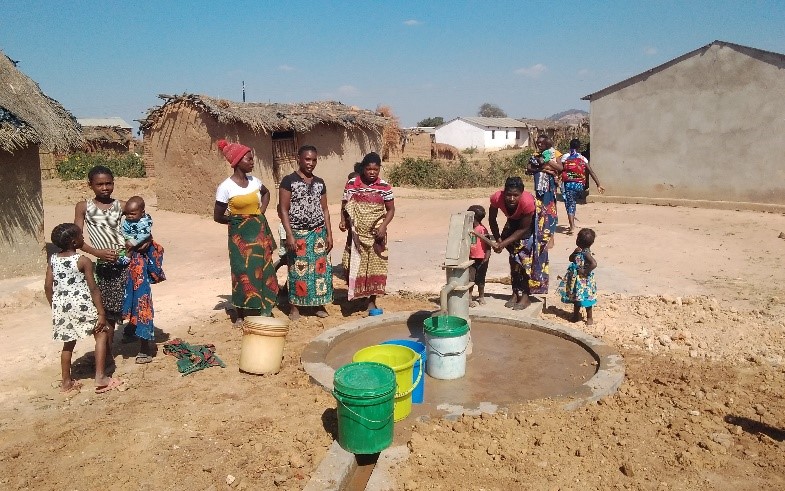
During a modest handover ceremony of the borehole on 26 July 2023, all the five headpersons were either present personally or represented by their senior indunas. And speaking on behalf of his fellow headpersons, headman Lopo expressed profuse thanks to LifeNets and the local leadership of the United Church of God for lobbying LifeNets.
“We have endured water blues for so long that we shall safeguard this facility jelousily,” he said. “We do not want to beg from our benefactors continuously. So we have already set up a Borehole Committee that will oversee the proper use of the facility. It will also collect a small levy from each household to be used for maintenance and repair of the borehole.”
Speaking after the headman, Anselm Jere, leader of the Bible Study Group of the United Church of God in the area, also thanked LifeNets International. “With water nearby,” he said, “we will now be able to make bricks and build a small structure for our weekly Bible study session on the Sabbath. In this way, we shall be able to contribute in the work of Preaching the Gospel.”
PHOTOGRAPHIC
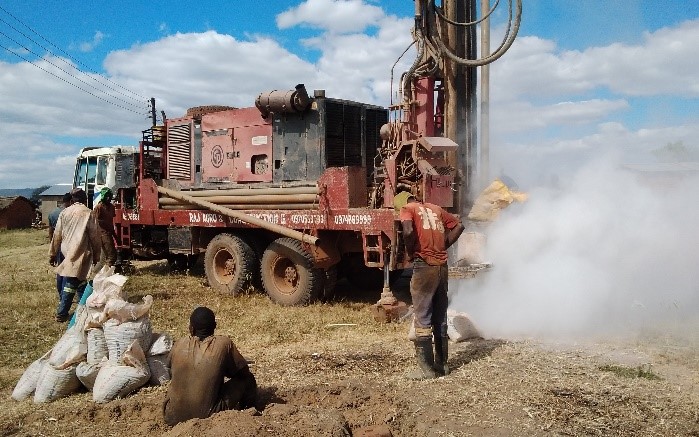
The drilling rig struck hard rock only a few meters below the surface. This went all the way down to the contracted fifty meters. Work was abandoned.
Members of the Lopo UCG Bible Study group were very disappointed with the bad result in the wake of a lot of excitement. However, they were elated to hear that LifeNets would try for another borehole at another site within the village.
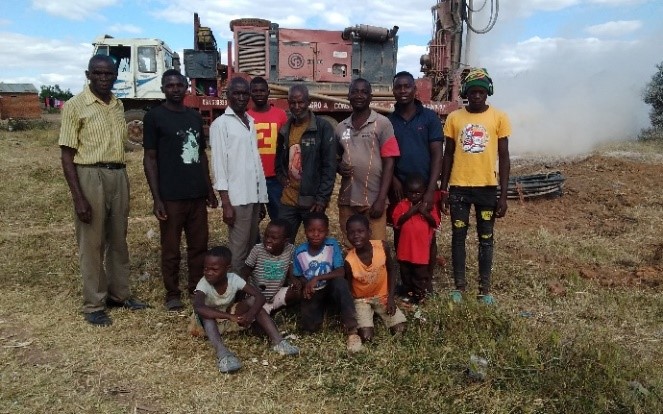
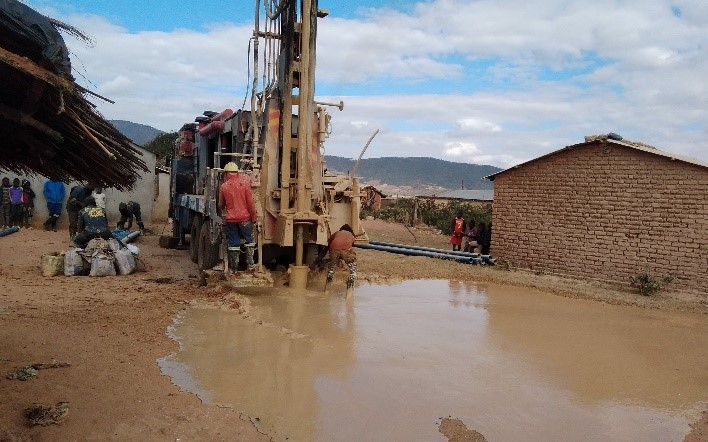
At the new site, water was struck at a depth of twenty meters and it was gushing all the way down to a depth of fifty meters. The pool of water that formed indicated that there was a good water reservoir underground.
The hand-pump was fixed immediately and a local bricklayer volunteered to build a circular pan around it to control spillover and maintain hygiene.
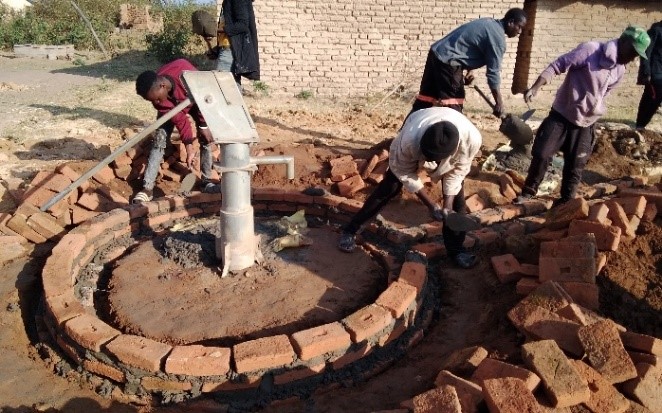
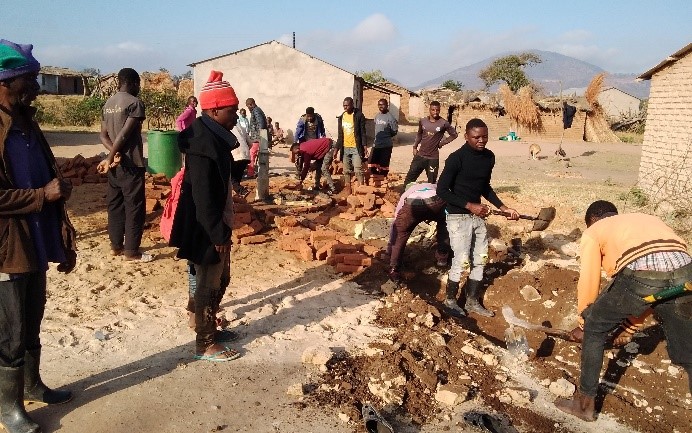
This was a most exhilarating occasion for the villagers and everyone was willing to volunteer in any work to make the borehole site clean and safe. This included digging a trench to a soak-away (pit) for spill-over.
Thorny tree branches were put around the borehole to keep away children and village livestock. Nobody was allowed to use the borehole for three days to allow the wet concrete to cure and settle down.
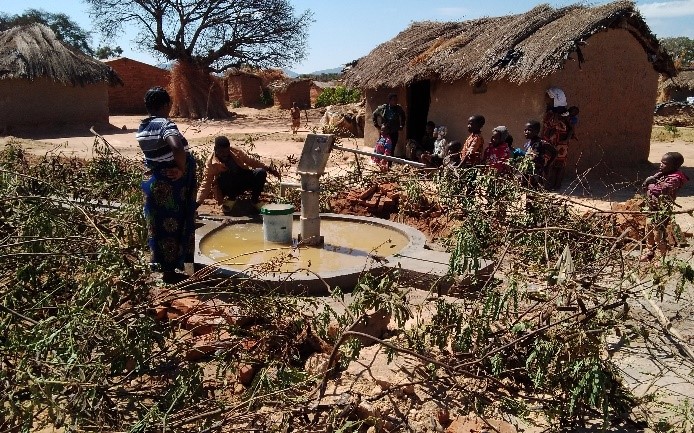
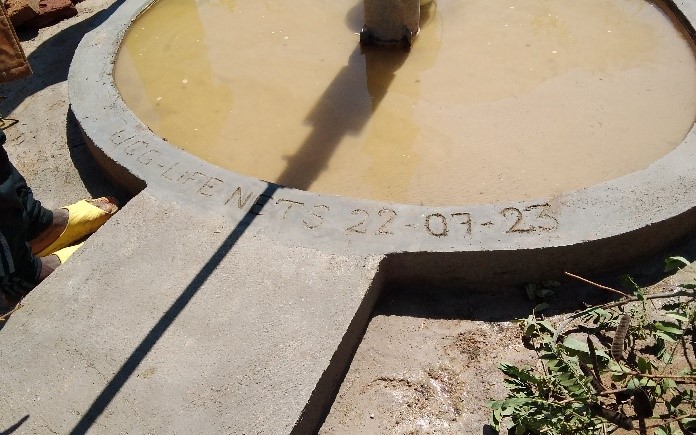
“LifeNets 22-07-23” was also engraved into the wet concrete as a perpetual indicator of the people’s gratitude to their benefactors..
The borehole was handed over to Lopo community by the elder of the United Church of God, on behalf of LifeNets International. The UCG Bible Study group plans to start making bricks for small hall for their Sabbath meetings.
